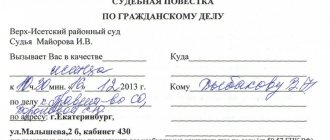The detention of a citizen by the police is not uncommon. According to Russian law, a law enforcement officer has the right to detain any person if there are certain grounds for this. But often the detainees themselves do not believe that they have violated any law, and try to prove that they were detained illegally.
Let's figure out how, when and under what circumstances a police officer has the right to detain a citizen, and when this is an abuse of his powers.
Neglecting knowledge is dangerous
How to behave when detained by the police? Almost everyone can assume that anyone is capable of getting into such a situation, but not him. Therefore, you don’t have to worry about this. At the same time, many often do not even know how to behave and what to do when meeting a person in uniform.
This kind of thinking can lead to very sad consequences. Even if the person detained is not guilty of anything, ignorance and erroneous behavior can take a huge amount of time and effort to solve problems that could easily be avoided.
Conversation restrictions
Investigators have the right to introduce restrictions on the right to make a telephone call. This opportunity is guaranteed to them by Part 4 of Art. 96 Code of Criminal Procedure. This decision is justified by the need to preserve the secrecy of the fact of detention in the interests of the investigation. To restrict the right to make a call, there must be a reasoned resolution of the inquiry officer or investigator with the consent of the prosecutor.
The introduction of restrictions is not permitted if the suspect is a minor.
In any case, the legal representatives of the minor are notified of the incident as soon as possible.
Readiness
Innocence is the best trump card.
Things like police detention should be taken very seriously. And the most important thing to do is to minimize the risk of conflict with a law enforcement representative. You should not break even the most insignificant laws, since it would seem that even for such a trifle as a cigarette smoked in the wrong place, you will have to pay with money from your own wallet, and this is in the best case.
But it's not that simple. It happens that police detention can occur without any legal grounds. This situation can happen for many reasons - from the external resemblance of the detainee to a person who has broken the law, to a banal mistake by a law enforcement officer.
Concept
The fifteenth paragraph of the fifth article of the Criminal Procedure Code of the Russian Federation establishes that detention is the actual deprivation of freedom of movement of a citizen who is suspected of committing a criminal offense. It is carried out in strict accordance with the procedure defined by the Code. The period of detention is calculated from the moment the person is actually deprived of the opportunity to move freely.
This measure in relation to a potential criminal is a coercive measure. Its use is permitted by a certain circle of subjects (law enforcement agencies and other bodies). The maximum period of detention of a suspect is calculated in hours and cannot exceed forty-eight hours. If during this period the citizen’s guilt is not proven, he must be released.
Some legal scholars determine that the period of detention of a suspect is calculated from the moment he is brought to the interrogating officer or investigator. This measure is short-term in nature.
Professional support
The second, but not least important, “trump card”, which may turn out to be one of the most powerful, is legal support. Of course, not everyone can afford to hire a private lawyer, but there are many law firms that can help in this situation, if not as lawyers, then at least with advice. Having that kind of power behind your back is quite useful. And not only in such cases.
Grounds for releasing a person
Early release of a detainee occurs in the following cases:
- there is no guilt of the suspect in committing the crime or connection with it;
- during the arrest, police officers violated the procedure for conducting this procedural action;
- there are no grounds for depriving a citizen of his freedom.
Timely release of a detainee occurs in the following cases:
- the court refused to extend the period of detention;
- the court ruled to deprive the citizen of his liberty.
If the investigation officer sent a petition to the court about the need to extend the period of detention for another day due to the impossibility of making a final decision, the court issues a corresponding document (or refuses to extend the time).
After the end of the period of restriction of freedom, the released citizen receives a certificate about the time and period of detention and the reason for it.
Detention
So, the person was detained by a police officer. Whether it is erroneous or intentional does not change the essence of the matter. What actions should you take if detained by the police? Here are a couple of tips:
- Be calm and polite. Any dialogue is doomed to failure if one of the participants conducts it in a raised tone and with a negative message. You need to communicate calmly and politely. Firstly, this will minimize the risk of a conflict, and secondly, you will give the representative of law and order the impression of an adequate and balanced person, calm and, most likely, innocent, which will predispose you to a quick and peaceful resolution of the conflict
- Start the conversation right. Most often, police detention begins with the phrases “Come with us...” or “Show your documents...”. This is not correct and is not a basis for detention. The police officer must introduce himself, indicate his rank and show his identification. If he did not do this, you should ask his last name and rank, and ask to show his identification. The request will show your legal knowledge. It is a good idea to write down this information, as well as the time and location of the arrest.
- Why? For what? For what? After you are convinced that it was a police officer who detained you, and not an impostor or a bandit, you need to find out the reason for the detention. Even checking documents must have a basis.
Police detention: essence and interpretation of the concept
Detention is an event carried out by law enforcement officials, as a result of which a citizen is deprived of the opportunity to move freely, and the police officer has the opportunity to forcibly bring him to the authorities.
So who has the right to detain a citizen? Any authorized police officer can conduct an arrest; in this case, he is obliged to deliver the detainee to law enforcement agencies as soon as possible.
In addition, representatives of the traffic police and security units, bailiffs, employees of drug control organizations and border services have the right to detain a citizen.
On what basis can the police detain
There are more than enough grounds for detaining a citizen ; as a result of even one of them, a police officer can detain a person and take him to the police department for further proceedings.
All of them are enshrined in paragraph 2 of Article 14 of the Federal Law “On Police”.
Here are some of them:
- suspicion of participation in a crime;
- a court ruling that the citizen should be taken into custody;
- the need to draw up a protocol on an administrative offense;
- evasion of punishment in the form of arrest;
- person search;
- conducting administrative proceedings;
- evasion of execution of court-ordered medical or educational compulsory measures;
- curfew violation;
- illegal stay in protected areas;
- suicide attempt;
- the presence of severe mental disorders that pose a danger to others;
- the need to deport a person to the state of which he is a citizen.
In the absence of any of these grounds for police detention, the action will be considered illegal.
Grounds for detention
The grounds for detaining a citizen may be:
- Being in a territory where a special regime has been introduced, or in a place where special police control is being carried out, or where CTO is being carried out.
- Presence at the scene of an accident or crime.
- External signs or actions that give reason to believe that a citizen is involved in the commission of a crime.
- Possession of objects or substances prohibited by law, things for the storage or use of which a permit is required
- The presence of similarities with the appearance of a wanted criminal or a missing person.
- Sufficient suspicion of committing an offense or intention to commit it.
They may be detained for the following reasons:
- To establish identity (in case of lack of documents),
- As a suspect or accused of a criminal offence.
- In connection with an administrative offense.
If you are sure that the detention is unfounded, first, do not lose your composure. Politely and calmly present arguments in your favor. If the result of the conversation is not that the police officer will let you go, you should call your relatives and report the arrest. You should then stop communicating with law enforcement until you consult with an attorney or attorney. Police officers are required to inform your lawyer about what happened at your request.
How to behave during arrest and registration of an administrative offense
A policeman stops you on the street. This is the most common case of contact with the police. Our handout lists the legal reasons why a police officer might stop you. Based on the practical experience of civil activists, we will tell you what exactly you can do in such a situation or if, as a result of a meeting with the police, they intend to bring you to administrative responsibility.
Remember that your active advocacy and strong legal position can have both positive and negative effects. In any situation, you need to act based on specific circumstances so as not to harm yourself.
Table of contents
General provisions
Police rights - when a police officer can stop a citizen
Your actions
Verification of documents
How to behave during administrative detention
Bringing to administrative responsibility
General provisions
The Police Law obliges the police officer to respect the rights and freedoms of citizens and people. The police are intended to protect the life, health, rights and freedoms of citizens of the Russian Federation and must immediately come to the aid of anyone who needs their protection. The police are entrusted with such functions as combating crime, maintaining public order and ensuring public safety.
The performance of these functions is impossible without constant interaction with citizens, which is why the police are vested with a number of powers, including the right to check documents and detain. At the same time, the law requires police to follow a certain procedure, starting from the moment they contact a citizen and ending with detaining the latter, if necessary.
Police rights: when a police officer can stop a citizen
The law provides four reasons why a police officer can contact a citizen:
1. there are grounds to suspect him of committing a crime;
2. there is information that the citizen is wanted;
3. there is a reason to initiate a case of an administrative offense against the citizen;
4. the policeman has grounds to detain the citizen (i.e. he committed an offense, for example, entered a protected facility or violated curfew rules).
The policeman has no right to check your documents if, for example, you seem “suspicious” to him. If the employee refers to the presence of an orientation, ask to present it or describe it. The orientation must contain information that allows you to identify the criminal: facial features, special features, and not just general descriptions that every second person will fit into.
What to do if a police officer approaches you:
1. ask the employee to state his position, rank, last name, and also present his service ID (clause 1, part 4, article 5 No. 3-FZ “On the Police”);
2. write down his last name, first name, rank and position in a notepad or phone, then listen carefully to the reason and purpose of contacting you;
3. If a police officer for some reason refuses to comply with your legal demands and does not present his official identification, politely explain that the police officer is breaking the law by doing so. Write down the police officer's badge number. Remember, any police officer serving in a public place, regardless of position or rank, is required to wear a badge on his uniform that allows him to be identified (Part 5 of Article 25 of the Federal Law “On the Police”);
4. if you suspect that the policeman’s demands are illegal, call your family or friends, as well as a lawyer, and report that a policeman has approached you, briefly state the essence of his claims, dictate information identifying the officer, and also inform , where are you at. You can also immediately call 112 and leave a complaint about the actions of the police officer;
5. Remember that your active advocacy and strong position based on the law can have both positive and negative effects. In any situation, you need to act based on specific circumstances so as not to harm yourself.
6. In addition, it is useful to ask the police officer if you are being detained and find out the legal reasons and grounds for this action. If your arguments do not help, do not aggravate the situation and continue to demand that the police comply with the law;
7. if a legitimate reason for contacting you is nevertheless found, the police officer is obliged to explain to you the reason and grounds for the detention, as well as the rights and obligations of a citizen arising in connection with this (clause 2, part 4, article 5 No. 3-FZ “ About the police").
Verification of documents
The law does not provide for the right of a police officer to arbitrarily check citizens’ documents. This means that the police cannot ask you to show your passport without good reason. Often, police officers refer to the fact that you may have allegedly violated registration records (you live without a conditional “registration”) or, for example, are wanted by the military registration and enlistment office. Among the illegal arguments there is also “prevention” or you are like “targeting”.
Situation No. 1. A policeman approaches you and asks you to show your passport. After your request to introduce yourself and show your identification, as well as to explain what “prevention” is and what the legal grounds for the application are, the policeman says that you look like a wanted person and he allegedly has an orientation. Ask the police officer to describe the landmark and clarify why he initially approached you for a different purpose without mentioning anything about the presence of the landmark. If the police officer begins to make up reasons, inform him of illegal actions. Proceed also according to our instructions.
Situation No. 2. The policeman asks you to present documents, citing the fact that you may be wanted by the military commissariat or allegedly live in the city without registration. In such a situation, it is important to clarify with the police officer in connection with what circumstances he came to such conclusions. Let the employee know that you are a good citizen. Explain that the law provides clearly defined grounds for contacting a citizen and unfounded suspicions of violation of registration records allow you to conclude that the employee’s actions were unlawful, which you will be forced to appeal to the prosecutor’s office. Proceed according to our instructions.
Important: under no circumstances give your passport to a police officer - show it from your own hands, so as not to become a “hostage” of the document. If a police officer demands that you give him a document, open the last page of your passport and read the clause that obliges you to carefully keep the document and prohibits its seizure. You can also remind the police officer that you did not touch his official ID, and the passport is your ID.
How to behave during administrative detention
Administrative detention is a short-term restriction of freedom of an individual, which can be applied in exceptional cases, if this is necessary to ensure the correct and timely consideration of a case of an administrative offense or the execution of a decision in a case of an administrative offense (Part 1 of Article 27.3 of the Code of Administrative Offenses of the Russian Federation). However, in reality, in almost 100% of cases, police officers detain citizens to draw up a report.
If possible, turn on a voice recorder or video recording on your phone.
Helpful advice: if you are detained for the purpose of drawing up a report on an administrative offense, ask the policeman why he cannot draw up a report on the spot, as traffic police officers do. In the future, this may help to appeal against illegal detention.
1. Be polite and tactful. After you have been explained the basis and reasons for the detention, first of all you need to check with the police officer to which police department you will be taken. If possible, immediately inform your loved ones or relatives about this, call your lawyer or attorney.
2. If the police officer who is detaining you does not introduce himself, write down his badge number. Try to remember special signs, as well as the number of the company car.
3. Do not resist the police officer's demands, unless they are clearly illegal - but even then, try as much as possible to record what is happening or tell someone. Resisting even illegal actions in practice may result in criminal charges being filed against you. If possible, call 112 and leave a complaint.
4. Remember the time when you are taken to the police department - from this moment the period of detention is counted equal to 3 hours (Part 1 of Article 27.5 of the Code of Administrative Offenses of the Russian Federation). In exceptional cases, clearly defined by law (part 2, 3 of article 27.5 of the Code of Administrative Offenses of the Russian Federation), this period can be extended to 48 hours. Immediately upon arrival at the police department, contact the officer with a request to make a note of your arrest in the arrest register, as well as notify your relatives, the administration at your place of work/study, or your defense attorney about the fact of your arrest (Part 3 of Article 27.3 of the Code of Administrative Offenses of the Russian Federation). Separately, you must be given the right to a telephone conversation no later than three hours from the moment of arrest (Part 7, Article 14 of the Federal Law “On the Police”).
5. From the moment of detention, you have the right to the assistance of a defense lawyer (Part 2 of Article 48 of the Constitution of the Russian Federation).
6. If you require medical assistance, notify the person on duty. From the moment of arrest, protecting the health of a citizen becomes the responsibility of the police.
7. Remember, the police are obliged to respect your dignity (Article 21 of the Constitution of the Russian Federation).
Bringing to administrative responsibility
If you are accused of committing an administrative offense, the police officer is required to draw up a report on the administrative offense. The protocol, as a rule, is the main evidence of your guilt, on the basis of which the case of an administrative offense itself will be considered (making a decision in the case of an accident). That is why it is important to use your rights most effectively at the stage of drawing up the protocol.
When drawing up a protocol on an administrative offense, you have the right to:
1. Give explanations, state your vision of the version of what happened. This information must be entered into the protocol, including by you personally (Article 26.3 of the Code of Administrative Offenses of the Russian Federation). This means that you can write in the protocol yourself – at least in the “explanation” section – everything you consider necessary. After your entry, place a dash with the letter “Z”. Sign before the dash.
2. Remember, explanations are your right, not your responsibility. You have the right to refuse to give any explanations (Article 51 of the Constitution of the Russian Federation).
3. When drawing up a protocol on an administrative offense, you have the right to use the legal assistance of a defense attorney (Part 1 of Article 25.1 of the Code of Administrative Offenses of the Russian Federation). This means that you can only agree to give explanations in his presence.
4. In addition, you retain the right to give evidence and explain yourself in your native language, as well as to use the help of an interpreter free of charge (Part 2 of Article 24.4 of the Code of Administrative Offenses of the Russian Federation).
5. If you need a lawyer, but the policeman refuses to provide the opportunity to call him, write about this in the protocol (“I requested a lawyer, but the invitation of a lawyer was refused”).
6. When drawing up a protocol, you also have the right to familiarize yourself with all the materials of the case (Part 1 of Article 25.1 of the Code of Administrative Offenses of the Russian Federation) - count the documents, rewrite their names, write in the protocol “I was allowed to look at such and such documents / was not given.” This will not allow you to supplement the material later.
7. Ask for both a copy of the protocol on the administrative offense (Part 6 of Article 28.2 of the Code of Administrative Offenses of the Russian Federation) and a copy of the protocol of detention (Part 2 of Article 27.4 of the Code of Administrative Offenses of the Russian Federation). If necessary, you can add the necessary explanations and clarifications to the protocol, as well as refuse to sign (part 4,5 of article 28.2 of the Code of Administrative Offenses of the Russian Federation).
8. You can always get an explanation of your rights when drawing up a report by a police officer (Part 5 of Article 27.3 of the Code of Administrative Offenses of the Russian Federation). If your rights were not explained, write “my rights were not explained to me” in the protocol.
After drawing up the protocol, the issue of bringing you to administrative responsibility will be decided: the head of the department of the Ministry of Internal Affairs will independently make a decision and hold you accountable, or all materials will be transferred to the court, which will make a decision on the merits. You must be notified in writing about the date and place of the consideration of the case - usually this kind of mark is in the protocol.
If the head of the department of the Ministry of Internal Affairs begins to consider the case immediately, make a note in the protocol about the need to postpone the date of consideration of the case due to the need for consultation and assistance from your lawyer.
After the police officer draws up a report on an administrative offense, the report with all the materials of the case is transferred to resolve the issue of bringing you to administrative responsibility to an authorized official or to the court.
You must be properly notified of the time and place of the hearing. A lawyer or other person is allowed to participate in proceedings regarding an administrative offense as a defense lawyer or representative (Part 2 of Article 25.5 of the Code of Administrative Offenses of the Russian Federation).
The defense lawyer and the representative are allowed to participate in the proceedings on the case of an administrative offense from the moment the case of the administrative offense is initiated.
In other words, any citizen can be a defender, but his powers must be certified by a power of attorney issued in accordance with the law (Articles 185–189 of the Civil Code of the Russian Federation).
How to appeal against administrative liability?
What to do if the police come to your home?
Return to help section
Use of physical force
Can a police officer use physical force during an arrest? A police officer can use force to prevent a crime and overcome opposition. If the detainee did not give a reason to use physical force, but the officer nevertheless allowed himself to do so, misconduct by the police officer has occurred. This must be noted in the protocol.
If a person is injured during the arrest, law enforcement officers are required to inform the victim’s relatives as soon as possible (maximum within 24 hours).
Whom does the detainee have the right to call?
The legislation does not clearly indicate the list of persons who can be called as part of the exercise of their rights.
The right to a telephone call is guaranteed to a detainee for a reason, but so that he can notify his loved ones about his whereabouts and the fact of detention. He can call his wife, children, parents and other close people and relatives.
If you were unable to call your loved ones, you can report the incident to third parties.
In the department
If it was not possible to avoid a trip to the police station, you should, as before, remain calm. The first step is to insist on drawing up a protocol. It is worth remembering that you have the right to make any comments that you deem necessary into the protocol. In addition, the detainee has every right to independently draw up a protocol. In this case, it is necessary to indicate the exact time, and also mention any unlawful actions on the part of the officer who carried out the arrest, if any.
It is strongly recommended to request a copy of the completed protocol. And in general, any papers that you consider necessary to sign.
What should I do? What to expect next? After drawing up the protocol and other formalities, it is worth finding out what prospects await you. You should ask this question both to the investigator handling your case and to the attorney or consulting attorney. According to the law, police can detain a person for a period of no more than 48 hours. During this time, charges must be filed.
It is worth remembering that no rights exempt you from the need to behave with restraint. From the moment of arrest until the end of your stay at the police station, it is better to carefully think about everything you say. Because everything anyone arrested says can be used against him. So it's better to be careful, focused and calm.
If the charge brought is of an administrative nature, then according to the law, a citizen detained under an article of the administrative code can be kept in the department for no more than three hours. Otherwise, the detainee has the right to demand release, of course, if there is no reason to assume that the detainee is involved in committing a crime of a criminal nature.
The right to refuse to give explanations and testimony upon arrest
Referring to the use of the right during arrest to refuse to give testimony and explanations, we will say the following.
Get it once and for all! Refusal to give explanations and testimony at the first stages, especially before a conversation with a defense lawyer, can make your defense more effective, not worsen your position in the case, and preserve your chance of dismissal of the case or an acquittal.
Almost always, during an arrest, operational workers, using the opportunity provided by the criminal procedure code to obtain explanations before initiating a criminal case, try to obtain explanations from the detainee, and in the absence of a lawyer. The risk of violation of rights when giving explanations is much greater than during interrogation (i.e., giving testimony).
Criminal procedural legislation provides for the obligation of the investigator to interrogate a person detained on direct suspicion of committing a crime. The detainee must understand that this duty of the investigator does not entail the obligation of the person to testify. Those. The investigator is obliged to interrogate the detainee, but the latter has the right to refuse to testify. In such a situation, an interrogation protocol is drawn up, which indicates the suspect’s refusal to testify.
It should be noted that the law provides for the right of a detainee, at his request, to be interrogated with the participation of a defense lawyer no later than 24 hours from the moment of actual detention. In such a situation, we also recommend that you decide whether to testify or not only after talking with a lawyer.
Remember! It is the first explanations and testimony of the detainee that subsequently form the basis of the guilty verdict. In practice, it is impossible to refuse them later.
Here we note that a confession written after arrest in the case or circumstances for which a person was detained does not have any legal significance. Read more about confession in a separate article by Ilya Igorevich Pankov’s lawyer. A link to the list of a series of articles on the topic: “The right to defense” is given at the end of this article.
Thus, in the event of detention, we strongly recommend that you communicate with operational workers and investigators on the merits of the suspicions brought against you only after talking with a lawyer. After communicating with a lawyer, you will be able to decide for yourself what behavior you want to choose in a criminal trial and whether to testify at all during the investigation or not.
For more information on the exercise of the right to refuse to give evidence and explanations to suspects (including detainees), accused, read a separate article by lawyer Ilya Igorevich Pankov. A link to the list of a series of articles on the topic: “The right to defense” is given at the end of this article.
Detention of minors
If we are talking about the detention of a minor by the police, the form of communication with representatives of the law is the same as described above. However, it is worth remembering that here the difference between an administrative and a criminal violation is more significant.
Administrative responsibility begins at sixteen full years. Otherwise, all detention procedures (with the exception of transportation to the police station if necessary) are carried out exclusively in the presence of a lawyer or teacher, parent or guardian.
Teenagers can be detained for:
- homelessness;
- begging and vagrancy;
- use of narcotic or psychotropic substances, alcoholic or alcohol-containing drinks;
- committing socially dangerous acts that are not subject to criminal liability due to not reaching the age of criminal responsibility.
As for the search, examining a minor by a police officer is prohibited. But a search is allowed - this means that the policeman can ask the detainee to show the contents of his pockets or bag. Police officers have no right to forcibly empty pockets.
Detention procedure
The procedure for detaining a citizen by a police officer has a certain procedure , adherence to which ensures the legality of this event.
It includes specific actions:
- indicate your position, rank, surname, explain the purpose for which you are addressing the citizen, show your identification upon request, present it in expanded form and give time for familiarization (the police officer should not hand it over);
- explain the reasons for the detention, explain the rights, including the right to refuse explanations, legal assistance, notification of relatives, and also to an interpreter, if necessary;
- draw up a detention report;
- provide a five-minute telephone call to relatives, employer, place of study or lawyer no later than 3 hours from the moment of arrest.
Complaint against police officers
If you believe that the police officers' actions during the arrest violated your rights and were unlawful, you can file a complaint. The complaint can be made either orally or in writing. It is imperative to indicate all the circumstances of the arrest, the exact time and date of the incident, and personal information of the police officers (name and position). If law enforcement officers or those who pretended to be them did not show identification, you should try to describe their appearance as accurately as possible. You can also apply for protection of rights in court, bypassing lower-level structures.
Law enforcement actions
After an administrative detention has been made and the corresponding protocol has been drawn up, the period of 48 hours (in some cases less) begins to run.
Once the maximum arrest time has expired, the citizen must be charged or released. If during this period evidence of a person’s guilt was found, a preventive measure is taken against him.
Further detention in custody is not such a measure in this case. A citizen may be given a written undertaking not to leave the place or a measure in the form of arrest at home may be taken against him.
If a citizen has committed a crime of particular gravity, he may be left in the place of detention until a guilty verdict is announced. Moreover, such an arrest must be authorized by the court by issuing an appropriate resolution.
Three saving whales
Listed above are the basic instructions when detaining a person by the police. Essentially, all of the above comes down to two aspects: calm, polite behavior and knowledge of rights and laws. Of course, you shouldn't go ahead. In any situation, it is necessary to soberly assess what is happening.
The best way to protect yourself is to follow three basic rules. The main thing is calmness, legal knowledge and prudence. But still, the best way to protect yourself is and will always be to avoid situations that could lead to such consequences.
Reasons for the procedure
A person who is considered a suspect may be detained on the following grounds:
- the suspect was found at the scene of the crime;
- there is evidence that the person has committed a criminal offense;
- evidence was found on the citizen’s belongings or in the living quarters that indicate that this particular person committed a criminal offense.
In addition to the grounds, the reasons for detention are also important. These include:
- Attempts to escape made by a citizen under suspicion.
- The identity of the suspect or place of residence (registration) has not been established.
- The investigator received the prosecutor's permission to conduct this event.
If one of the above reasons is present, the period of detention is calculated on the same basis.
Citizen's actions
In order to prevent violation of the terms of detention by police officers, the suspect must know his rights and the algorithm of possible actions. The detainee should remember the following:
- During the procedure, it is necessary to request documents from the police officer, as well as find out the reason for this procedural action. Every citizen has the right to know what he is accused of, and every official must document his authority.
- The suspect has the right to ask a police officer to notify his next of kin about the fact of detention and the place of detention.
- When detained, you must independently record the time of this procedural action.
- When signing the protocol, the suspect must carefully study all the information and data included in the document.
- The suspect must be released after the period of restriction of freedom has expired, unless specific charges are brought against him and there are no grounds for extending the period.
- Upon arrival at the police station, the detainee has the right to seek legal assistance from a lawyer. If the suspect cannot pay for the services of a third-party representative, a public defender is provided to him free of charge.
- When detained and in the police department, the suspect should not be rude to the police officers, use violence, and so on. Otherwise, certain sanctions will be applied to him.
The rights of a detainee include the following:
- know the reason for detention;
- use the services of a lawyer;
- give oral and written testimony in your native language, even if it is not Russian;
- use the services of a translator (if necessary);
- study the protocol, sign or write a disagreement;
- receive a photocopy of the protocol;
- If a suspect remains in the place of detention for more than three hours, he has the right to receive a place to rest and food.
Detention periods must be strictly observed by law enforcement agencies. The suspect, for his part, must monitor compliance with these deadlines and comply with the rules of conduct during detention.








